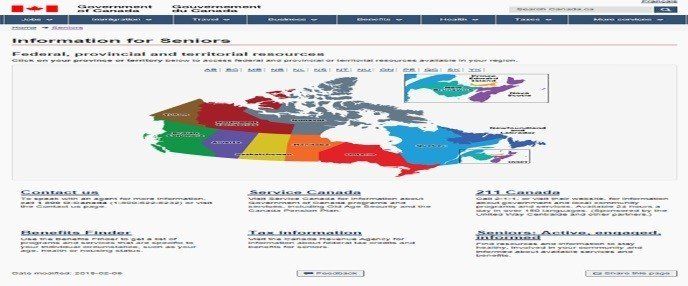Retirement Planning: Retirees – A list of Government Services and Benefits
Need for retirement planning in Canada. As more and more Canadians are entering their golden years and heading into retirement, it is important to remember that seniors in this country are eligible for many benefits, services and programs on a federal, provincial and municipal level. Once you arrive at the age of 65, you are legally a senior in Canada and are privy to the Government of Canada’s website dedicated to information for seniors. These websites are also a great tool to assist Canadians with retirement planning.
Government Of Canada – Website for Seniors
http://www.seniors.gc.ca/eng/pie/saei/index.shtml
This website allows you to choose your province of residence and provides you with an array of information including provincial programs for seniors, federal benefits and pensions as well as federal tax information, application instructions and forms for Old Age Security (OAS) and Canada Pension Plan (CPP).
Benefits
The website also gives you access to a Benefits Finder tool, which allows you to receive a customized list of benefits that pertain to your personal situation and eligibility by answering a short list of questions. Each province and situation has different eligible benefits and by answering these questions, you can have a good sense of what you and your dependents are qualified for.
http://www.canadabenefits.gc.ca/f.1.2cw.3zardq.5esti.4ns@.jsp?lang=eng
Physical activity, healthy eating and maintain a healthy home
There is even an information guide on the website giving tips and advice for seniors to stay active, engaged and informed. This includes advice for physical activities, healthy eating and maintaining a safe and healthy home.
http://www.seniors.gc.ca/eng/pie/saei/index.shtml
Tax information
One of the links on this website is Tax Information from the Canadian Revenue Agency (CRA). This link provides seniors with specific information related to filing taxes as a senior, including CPP and OAS information as well as medical expenses and many other common topics pertaining to seniors and their taxes.
http://www.cra-arc.gc.ca/seniors/
Please make
sure to take advantage of this informative tool for seniors. Whether you are
entering your golden years yourself or you are helping a senior with retirement
planning, it is always good to stay ahead of the game and be prepared to enroll
in the benefits and services/programs that the Canadian government has to
offer.
This article is the property of HomEquity Bank and has been published with permission.







